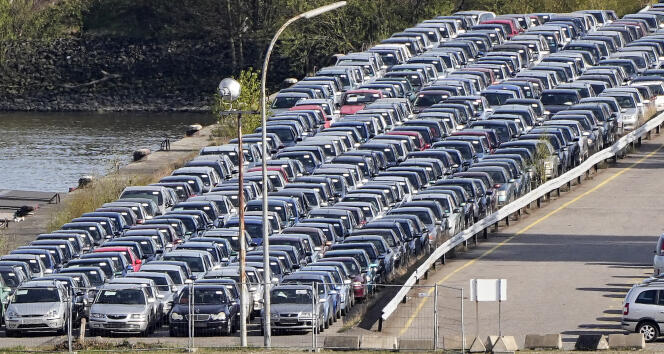The employees of spare parts suppliers in France remain pessimistic as the sale of new petrol and diesel engine cars in Europe will only continue within the next decade, according to France 24.
France’s 2035 deadline for phasing out new internal combustion engine vehicles is looming, leaving the car and parts sales industry on the brink of decline, with more than 200,000 workers facing forced change.
Severine Person, a quality control expert at the company’s facility in Vouziers in the northeastern Ardennes region of France, noted that the transition to electric vehicles was possible when Walor acquired them in 2018, but they did not invest. Therefore, demand for transmission differential housings and engine manifolds is likely to see major changes.
However, a German fund that specialises in the recovery of distressed companies bought out Walor last year, with plans to sell a site in Vouziers and another nearby. Now Person and her colleagues have come to terms with the likely closure of the plant, given the shrinking order book.
Despite the impending decline, the set-up is different in the north of the country, where a number of battery “gigafactories” are under construction, including the Automotive Cells Company (ACC) in Doveren. The joint venture includes carmakers Stellantis and Mercedes, as well as French oil and gas giant TotalEnergies.
The company ACC has built its huge battery factory on the site of a factory that produces engines for Stellantis, whose cars include the French brands Citroen and Peugeot. The location came in response to a “social need” to retrain the factory’s staff, as the workforce has shrunk from around 5,000 in the 1980s to 700 today, according to Stellantis.
So far, efforts are under way to avoid staff reductions and the loss of many jobs. Some 17,000 jobs are to be created at the giant battery manufacturing and recycling plants by 2026, for example, but it remains unclear whether this will be enough to avoid layoffs.
The 2021 study by the French metalworking industry found a switch to electric vehicles by 2030 would jeopardise 65,000 jobs in the sector. Bernard Julien, an economist and researcher, estimates job losses in the auto parts sector at 40,000 in 10-15 years due to the switch from petrol-powered engines to electric ones.
The economist believes that the electrification of cars will be accompanied by an increase in offshoring, bringing total employment in the French automotive industry down to 100,000 people or even less.
